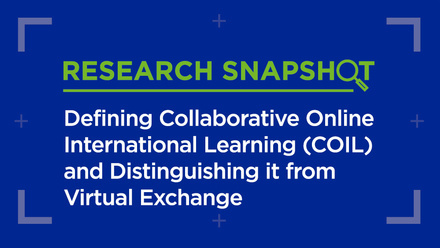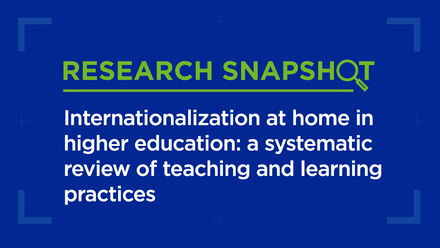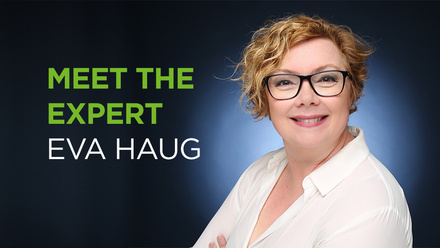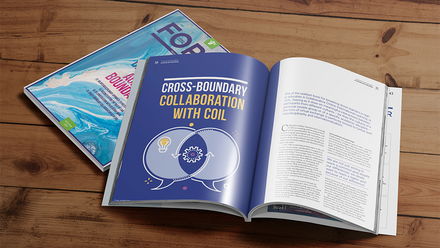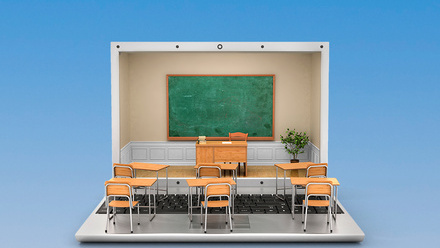COIL vs the quiet quitting approach

Four years have passed since the onset of the COVID-19 pandemic. And yet, there is a topic that still resonates with me: the emergence of a viral trend called "quiet quitting" captured the attention of many. The term refers to an attitude among employees where they work at the minimum capacity necessary to fulfil their obligations and objectives, but do not complete extra tasks such as responding to emails outside of working hours. It prompted a re-evaluation of my own priorities and values. Growing up and working in Mexico, a country known for its strong work ethic, I was accustomed to long hours and a culture that prized hard work above all else. However, the events of 2020 forced me to pause and reconsider what truly matters in life.
The pandemic highlighted the importance of health, community, and achieving a balance between work and personal life. This shift in mindset is not limited to the workplace; it extends to the field of education. As someone deeply involved in international higher education, I have witnessed students quietly resigning from traditional educational practices. While they may still meet the basic requirements, there is a noticeable lack of enthusiasm for going above and beyond. Many young minds are seeking a more balanced approach to learning, one that emphasises practical skills and real-world experiences over rote memorisation and standardised testing.
This is where Collaborative Online International Learning (COIL) comes into play. Over the past two decades, COIL has emerged as a transformative force in education, allowing students to engage in virtual collaboration with peers from around the world. The first wave of COIL initiatives saw universities experimenting with virtual exchange programs, asynchronous collaborations, and joint projects, adding value to already established courses. These endeavours laid the groundwork for more sophisticated and immersive experiences. The evolution of communication technologies played a pivotal role in enhancing COIL experiences. High-quality video conferencing, and collaborative online platforms have eased real-time interaction and engagement, overcoming previous limitations. COIL has transitioned from being an isolated project to an integral part of educational curricula. Numerous disciplines, from science and engineering to the humanities, have embraced COIL, providing students with a richer, more globalised learning environment. Efforts to make COIL more accessible have led to partnerships between institutions, the development of open-access platforms, and the creation of resource-sharing networks. This has democratised international collaboration, making it available to a broader spectrum of people.
Today, COIL has expanded to institutions worldwide, gaining popularity in Latin America as an innovative and effective way to foster knowledge exchange. Three years ago, ITESO, the Jesuit University of Guadalajara, embraced this practice and designed a program to implement COIL as part of its internationalisation at home strategy. A central aim of this mission was to achieve intercultural understanding, recognising this as an important value for addressing the challenges facing the world. An example of this is the collaboration that has been ongoing for over three years with the Escuela Superior Integral de Lechería (ESIL) in Argentina. The teachers developed a program to generate an exchange and academic cooperation between the curricular spaces of "Dairy Product Processing and Innovation", "Milk Technology III", and "Internships", enabling closer interaction between student groups from each institution. They analysed three products (existing in both regions) and presented the results through the lens of their respective courses. In addition to comparing the approach to analysis in each dairy product, the enriching moment of these subjects came during reflection, where they found similarities in opinions and perspectives, highlighting the working methods of their international peers, and sharing their conclusions regarding stress and anxiety in university students. These reflections enrich the subject, bring closer alignment to the work reality, and hint at the importance of mental health.
I have seen firsthand the positive impact it can have on students' academic and personal development, pulling them away from quiet quitting and allowing them to find a balance between learning, practical application, and interculturality.
As someone who has been involved in COIL initiatives, I have seen firsthand the positive impact it can have on students' academic and personal development, pulling them away from quiet quitting and allowing them to find a balance between learning, practical application, and interculturality. It affords students the opportunity to seek solutions to real-world problems, rather than merely striving for a good grade. Looking ahead, I am excited about the future of COIL and the potential for further advancements in technology to enhance the learning experience. All in all, COIL represents a paradigm shift in education, embracing technology to create a more interconnected and inclusive learning experience. As an innovative practice, COIL holds tremendous potential to shape the future of education and prepare students for success in a globalised world but above all, it helps to prevent them from slowly resigning from higher education.

